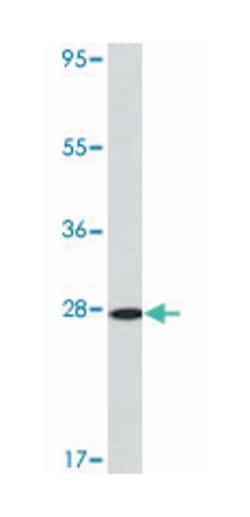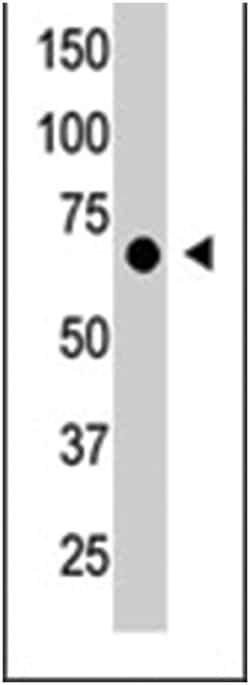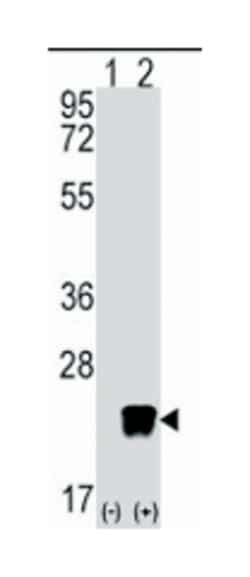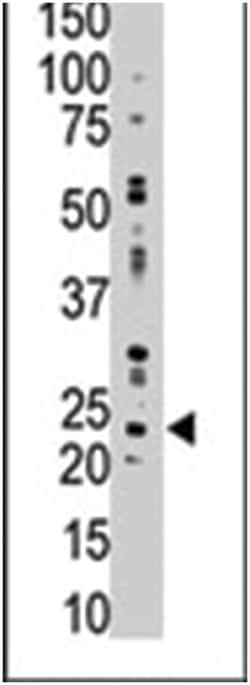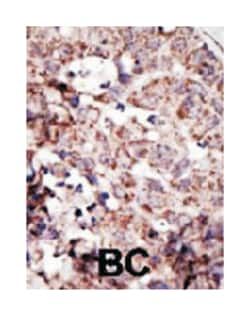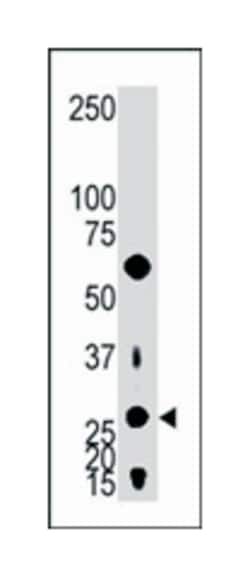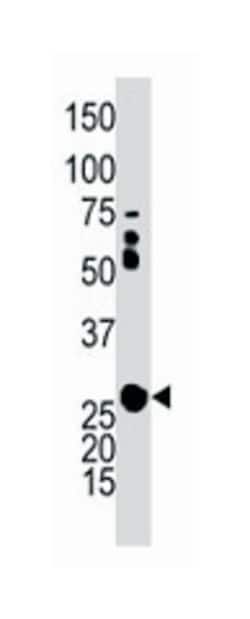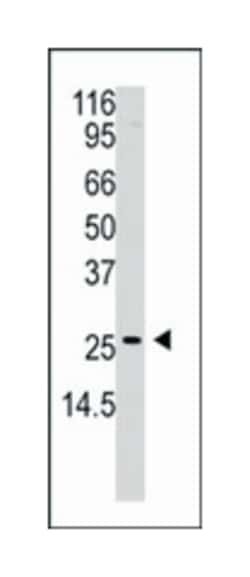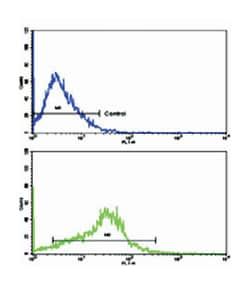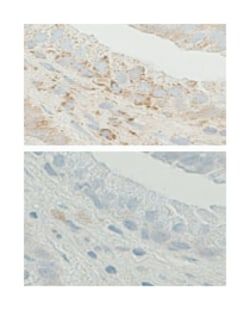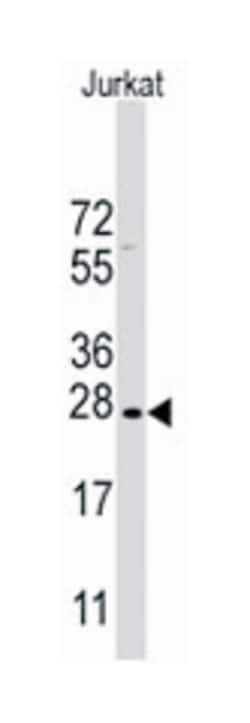APH1A Rabbit anti-Human, Polyclonal Antibody, Abnova™
Manufacturer: Abnova Corporation
Select a Size
| Pack Size | SKU | Availability | Price |
|---|---|---|---|
| Each of 1 | 89-131-633-Each-of-1 | In Stock | ₹ 50,641.00 |
89-131-633 - Each of 1
In Stock
Quantity
1
Base Price: ₹ 50,641.00
GST (18%): ₹ 9,115.38
Total Price: ₹ 59,756.38
Antigen
APH1A
Classification
Polyclonal
Description
Rabbit polyclonal antibody raised against synthetic peptide of APH1A.
Formulation
In PBS (0.09% sodium azide)
Gene Accession No.
NP_001071096;NP_057106;Q96BI3
Gene Symbols
APH1A
Immunogen
A synthetic peptide (conjugated with KLH) corresponding to N-terminus of human APH1A.
Quantity
400 μL
Primary or Secondary
Primary
Target Species
Human
Form
Liquid
Applications
ELISA, Immunohistochemistry (PFA fixed), Western Blot
Conjugate
Unconjugated
Dilution
ELISA (1:1000) Western Blot (1:100-500) Immunohistochemistry (1:50-100) The optimal working dilution should be determined by the end user.
Gene
APH1A
Gene Alias
6530402N02Rik/APH-1A/CGI-78
Host Species
Rabbit
Purification Method
Protein G purification
Regulatory Status
RUO
Gene ID (Entrez)
51107
Content And Storage
Store at 4°C. For long term storage store at -20°C.Aliquot to avoid repeated freezing and thawing.
Description
- APH1 is a multipass transmembrane protein that interacts with presenilin (see PSEN1; MIM 104311) and nicastrin (APH2; MIM 605254) as a functional component of the gamma-secretase complex
- The gamma-secretase complex is required for the intramembrane proteolysis of a number of membrane proteins, including the amyloid-beta precursor protein (APP; MIM 104760) and Notch (MIM 190198).[supplied by OMIM
